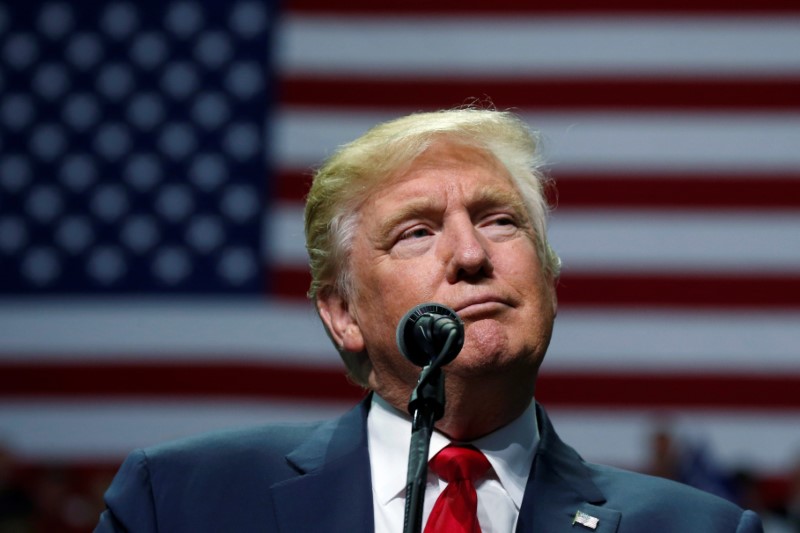(Bloomberg Opinion) -- How far down the rabbit hole are we on U.S. trade policy right now?
Just a few years ago, the idea that British cars and Canadian steel could be considered a national-security threat to America would have been laughed out of the room – but here we are, with so-called Section 232 tariffs still threatened on European automobiles and only just removed on Canadian metal.
Things went even further through the looking glass late Thursday:
President Donald Trump’s tweet isn’t even the worst of it: The tariffs will rise by 5 percentage points each month to hit 25% in October if the situation isn’t resolved, according to a separate White House statement.
The legal justification is the situation on America’s southern border, where apprehensions of illegal entrants are around their lowest levels since the 1960s. This is apparently deemed a national emergency – but gimcrack legal justifications are ten a penny these days. If you can argue with a straight face that an imported Fiat 500 is a threat to the safety of the republic, you can argue pretty much anything.
The real thing to worry about is what this outcome would mean for the Trump administration, and the wider ability of the U.S. to prosecute trade policy and diplomacy as a whole. Markets are, with justification, in a flap: The Mexican peso fell 2.1 % in a matter of minutes to its lowest level in nearly three months. Mazda Motor Corp., which imports all its cars sold in the U.S., slumped as much as 8% in Tokyo.
Clearly, any such move on tariffs would rip apart the complex web of manufacturing supply chains that crisscross the Mexican border, many of which are as beneficial to U.S. jobs as Mexican ones. Fully 36% of the value-added in Mexican exports comes from foreign countries, much of that from America. The country is the second-biggest foreign buyer of U.S. goods, with $265 billion in imports. From the circular trade in car parts to the crude that Gulf Coast refineries import from Mexico and send back in the form of gasoline and diesel, there’s an entire cross-border economy that would be devastated by these moves.
More importantly, though, the sudden and unexpected announcement of tariffs rising as high as 25% deals hard-to-reverse damage to America’s image as a reliable partner. Until a few hours ago, you could be forgiven for thinking that trade relations in North America were in a pretty good place. The Section 232 tariffs on Mexican metal imposed last year were lifted just two weeks ago. The U.S.-Mexico-Canada Agreement that President Donald Trump intended to replace the North American Free Trade Agreement has been signed, though it’s unlikely ever to pass Congress and into law.
Rather than provide consistent policy which allows foreign governments and businesses across the world to calibrate their decisions to the prevailing environment, this whipsaw diplomacy weakens America’s ties with its allies and causes capital to hunker down and wait for more predictable times. Forecast new orders in March fell to their lowest level since 2012, in a survey of U.S. businesses by the Federal Reserve Bank of Philadelphia. Capital-spending plans have fallen sharply from their peaks when President Trump took office, despite robust corporate profits.
It’s often claimed that this quality of unpredictability helps Trump keep his strategic rivals, such as China, on the back foot.
The trouble is, it’s not just Beijing that’s confused and disconcerted. Erstwhile allies in Mexico, Canada, East Asia, Europe and beyond are learning that an agreement with the U.S. government is barely worth the paper it’s written on, just as President Xi Jinping steps up his efforts to present China as a more reliable partner.
It still seems unlikely that America’s true allies could accept Xi’s charm offensive and edge themselves into Beijing’s orbit – but with each intemperate tweet, President Trump makes that outcome a little more probable.
